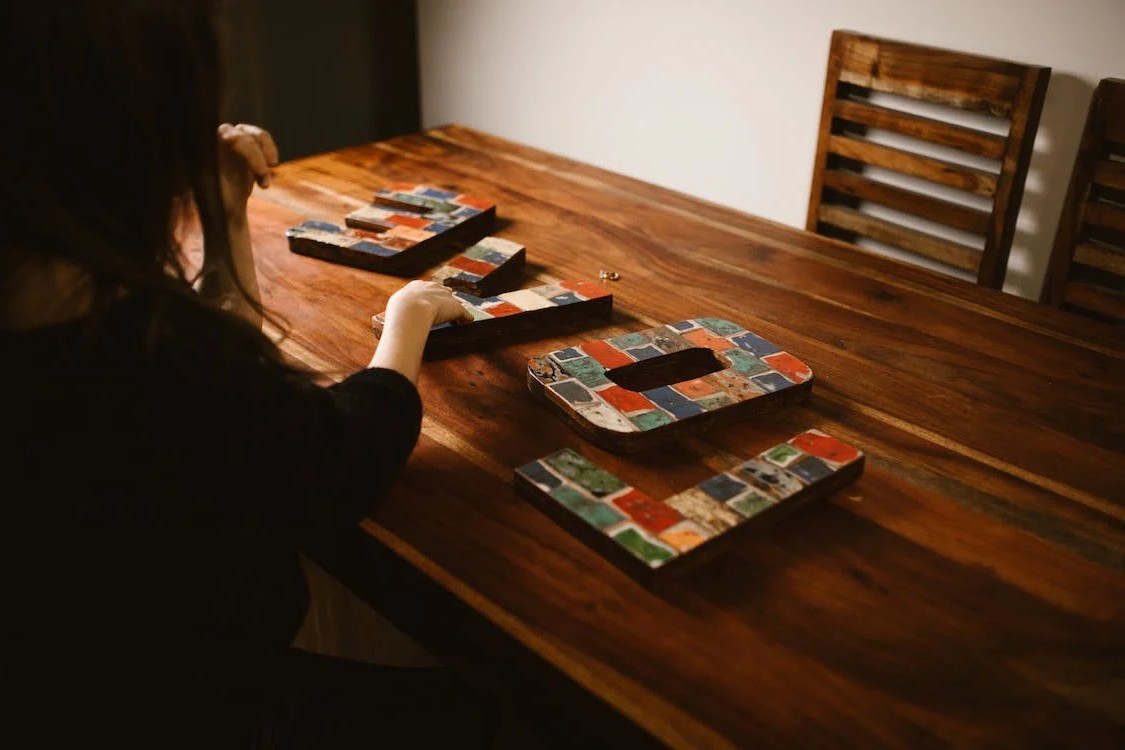The first truth about recovery that no one warns you about is this: it doesn’t just strip away the drugs, the booze, or the behaviours. It strips away you. Or at least, the version of you that addiction built, the one that knew how to survive, how to perform, how to control, and how to numb. That version doesn’t go quietly. It fights for its life. It claws to stay relevant. It tells you you’re nothing without it. And for a while, you believe it.
That’s what people mean when they talk about ego death in recovery. It’s not just a philosophical idea. It’s the lived, breathless experience of losing your old self, and not yet knowing who’s left standing after the dust settles.
The Addict’s Identity
Before recovery, addiction isn’t just a habit; it’s a whole personality. The addict self is cunning, resourceful, and convincing. It learns how to charm, manipulate, justify, and escape. It develops a kind of emotional armour, thick and impenetrable, because to survive addiction, you have to believe your own lies.
That’s the ego’s job, to keep you safe, even when “safe” means slowly destroying yourself.
In treatment, when the substance or behaviour is removed, what’s really being dismantled is that survival system. Rehab doesn’t just detox the body, it detoxes the identity. It rips off the mask that kept you functioning and forces you to face the raw person underneath, the one who’s been ignored, shamed, or buried for years.
And that’s terrifying. Because for most addicts, the addiction wasn’t the problem, it was the solution. It was the structure holding everything together. Without it, you’re free, but you’re also unanchored.
“Who Am I Without the Chaos?”
When you enter recovery, the mind immediately tries to rebuild something familiar. It starts panicking, looking for new ways to define itself. “I’m a recovering addict.” “I’m sober.” “I’m spiritual now.” “I’m into the gym.” Labels become the new crutch. You trade one identity for another, because the thought of existing without a label feels unbearable.
That’s the ego again, shape-shifting, surviving, insisting on definition. It doesn’t understand surrender. It only understands control. This is why early recovery feels like a death. Not because you’re dying, but because the version of you that once ran the show is being dethroned. The addict ego, the one that believed it was invincible, clever, and in charge, suddenly finds itself powerless. It’s like being fired from your own life.
The Breakdown Before the Breakthrough
Every person who’s been through serious recovery knows that moment. The one where you finally realise you can’t outthink this. You can’t fix it with intellect or charm or grit. The game is up.
That’s the moment the ego dies, or at least begins to.
It’s the collapse of the old coping system. The “I’ve got this” finally gives way to “I can’t do this anymore.” And for a brief, gut-wrenching period, you don’t know who you are. You feel exposed, hollow, and deeply uncomfortable in your own skin.
But that’s not failure. That’s the birth of truth.
Because beneath all the posturing, the deflection, and the control lies something simple: a human being who was trying desperately to survive pain. And when the ego stops performing, that human finally gets to speak.
The Lies the Ego Tells You
Ego doesn’t just protect you; it imprisons you. It tells stories that keep you stuck because the alternative, change, feels like annihilation.
It says things like:
- “You’re nothing without your hustle.”
- “If you stop trying to control everything, it’ll all fall apart.”
- “People respect you because you’re strong, don’t show weakness.”
- “You’re not addicted, you’re just under pressure.”
These lies aren’t malicious. They’re defence mechanisms. They were built to keep you functioning in chaos. But in recovery, they start to suffocate you. Healing means seeing through those lies and realising they were never the truth, just temporary scaffolding. And letting that scaffolding fall apart hurts like hell.
Why Surrender Feels Like Death
One of the hardest parts of rehab is the concept of surrender. To the ego, surrender sounds like defeat. It’s the opposite of everything the addicted mind has been taught, control, dominance, manipulation, survival.
But surrender in recovery isn’t giving up. It’s giving over. It’s saying:
“I’m done playing God in my own story.”
“I don’t have to be in charge of everything.”
“I’m willing to let something bigger, truth, honesty, reality, take the lead.”
The ego hates that. It panics when it’s not steering the wheel. But in that panic lies transformation. Because what comes after surrender isn’t nothingness, it’s authenticity. When the ego dies, the self that remains is raw, imperfect, and real.
The Grief of Letting Go
What many people don’t realise is that ego death brings grief. You’re not just losing a bad habit; you’re losing an identity you wore for years. You’re mourning the version of yourself who got you through the worst days, even if their methods were destructive. You start to look back with strange affection, “That person helped me survive.” And you’re right. The addicted self wasn’t evil. It was desperate. It built walls to keep you from breaking.
So yes, you grieve. You cry not just for what you lost, but for the person you once were. That grief isn’t weakness, it’s compassion. It’s the beginning of self-forgiveness.
The Quiet After the Storm
After the ego dies, there’s often a strange silence. No drama, no chaos, no crisis to fix. Just stillness. And for many in recovery, that stillness feels unbearable. Peace can feel like danger when you’ve lived your life on adrenaline. Calm feels suspicious. You start looking for problems to solve, fires to start, reasons to feel alive again.
This is the ego trying to resurrect itself. It misses the noise. The work here is learning to trust stillness, to let peace be something you deserve, not something you fear. To stop chasing the next emotional high and start noticing the quiet rhythms of an ordinary, beautiful life.
Rebuilding Without the Mask
The hardest and holiest part of recovery is rediscovering who you are without performance. Without needing to be “the strong one,” “the smart one,” “the victim,” or “the survivor.” You begin to see yourself without costume. You start asking:
Who am I when I’m not fixing everyone?
Who am I when I’m not hustling for validation?
Who am I when I’m not drunk, high, or dissociating?
The answers don’t come quickly. But that’s okay, because the person who’s emerging is real. They don’t need to impress anyone. They don’t need to perform healing. They just need to be. And that’s when you realise: the goal of recovery was never to get your old life back. It was to build a new one on truth.
The Spiritual Side of Ego Death
For some, ego death is purely psychological. For others, it feels spiritual, like something sacred collapsing. You start to see that you were never the voice in your head. You were the one listening. This realisation can shift everything. You stop identifying with the chaos. You begin to observe it instead. The cravings, the fear, the anger, they’re no longer you. They’re weather patterns passing through.
You start to realise you’ve always been more than your addiction. That the awareness behind all that noise was quietly waiting for you to come home.
And that home isn’t found in substances, people, or power, it’s found in stillness.
The Return to Self
Ego death isn’t the end of identity, it’s the rebirth of one. The person that comes out of recovery isn’t shiny or perfect. They’re scarred, humble, open. They laugh differently. They speak more slowly. They see through their own defences. You stop needing to prove yourself, because you finally understand that you are yourself. The show is over. The act is done. And that’s freedom, not the kind that feels euphoric, but the kind that feels steady.
You no longer need to escape because you’ve made peace with the parts of yourself that once needed to hide. You’ve faced the death of your ego and found something stronger underneath, honesty. People talk about recovery like it’s a glow-up, as if you walk out of rehab radiant, enlightened, and whole. The truth is far less glamorous. It’s slow, quiet, and sacred.
You don’t “find yourself”, you lose the self that wasn’t real. You peel off layers of fear, guilt, pride, and control until what’s left is someone honest enough to feel again. And when you meet that version of yourself, trembling, humble, raw, you realise it was never about becoming someone new. It was about remembering who you were before you had to pretend.
That’s ego death. It’s terrifying. It’s beautiful. And it’s the only kind of freedom that lasts.




